Greece was arguably the cradle of civilisation. Sitting in the Eastern Mediterranean, its extensive empire had many remnants well beyond the modern country’s borders. The Greek mainland and its thousands of islands in the Aegean and Ionian Seas are a hugely popular holiday destination in these days of cheap charter flights. They offer guaranteed summer sunshine and everything that families need.
The best time to visit Greece is dependent on individual interests. For families with children, the high season is school holiday time. However, on either side of those summer weeks, significant numbers head to Greece to relax and swim or sail the warm, clear waters. Others want to visit important historical or cultural sites. In times gone by, Greece was also a place of fable and legend.
Everyone visiting Greece can enjoy its wonderful Mediterranean cuisine based on olive oil and fresh fruit and vegetables. That may be by visiting the local markets and self-catering. Local tavernas throughout Greece and its islands welcome travellers, providing the best of local food, usually out in the open air. There is much to recommend Greece, so it is worth delving into greater detail. Over 30 million tourists went to Greece annually pre-Covid, with tourism representing 25% of the national Gross Domestic Product.
Also read:
- 20 Movies About Greece
- 20 Incredible Greek Landmarks
- 20 Famous Landmarks In Athens
- 20 Fairytale Castles In Greece
- When To Visit Greece
- 20 Beaches In Greece
- 20 Things To Do At Night In Athens
- 20 Day Trips From Athens
- 20 Cities In Greece You Will Love
- 20 Best Beaches in Mykonos
- A Guide To Winter In Greece
- 20 Things To Do In Mykonos
- 20 Things To Do In Rhodes
- Where To Stay In Athens
- 20 Museums in Athens
- 20 Things To Do In Santorini
- Best Greek Islands To Visit
- Car Rental Athens Tips
- Car Rental Mykonos Tips
- Where To Stay In Crete
- 20 Greece Tours For Your Bucket List
- 15 Things Greece Is Famous For
- 10-day Greece Itinerary
Best Time To Visit Greece
Greece in Summer
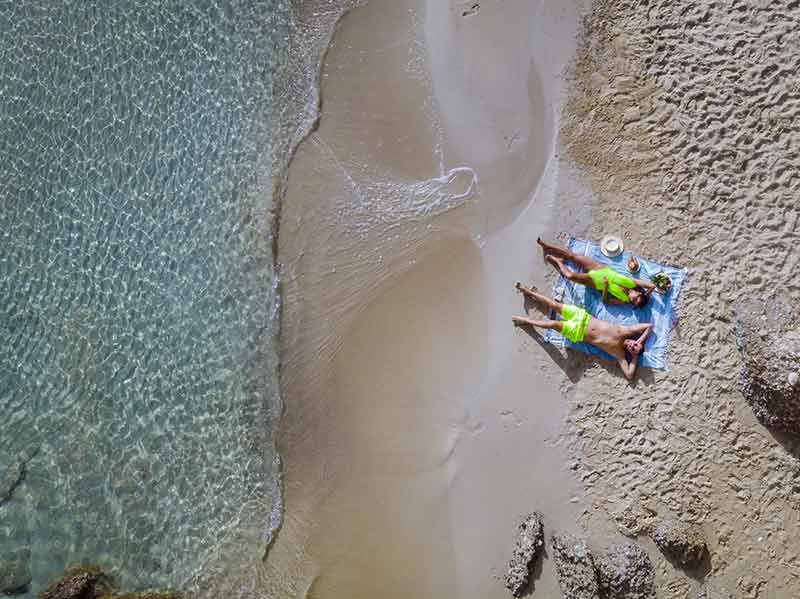
Direct charter flights head to Greece and several of the Aegean Islands throughout the summer months.
Athens is very popular with some holidaymakers who head out to the islands by ferry, making the cruise part of the holiday because sailing on the Aegean is an experience in itself.
Some of the most popular island destinations such as Crete and Rhodes, are quite far from Athens, so if you’re short on time you can fly direct.
There are many hours of uninterrupted sunshine every day through this high season.
It means that you will always return home with a healthy suntan even without spending many hours lying out to capture the sun’s rays.
Indeed, it is important to limit those hours and have plenty of shade at hand.
The refreshing ocean is a place for cooling off, and in established resorts, there will always be activities relating to the sea.
Temperatures during the high season are not conducive to too much walking. So if you have little choice but to visit Greece during the high season, wear something on your head and carry water if you do walk out to explore.
Here are some guideline stats but remember there are regional variations:
- June (Sunrise 0600, Sunset 2050, Average Low Temperature 21C (69F), Average High Temperature Average High 28C (82F))
- July (Sunrise 0615, Sunset 2050, Average Low Temperature 23C (73F), Average High Temperature 33C (92F)
- August (Sunrise 0640, Sunset 2020, Average Low Temperature 23C (73F), Average High Temperature 31C (88F)
Five Things to Do in Greece in Summer
1- Relax In The Sun
It may seem obvious in a warm environment, but simply relaxing is the number one priority for many people going on holiday.
The pressures of everyday life are a world away when you sit looking at a clear blue sky and equally blue waters.
There are large, busy islands like Crete or Rhodes and small, quiet ones like Chios, where Homer was born, Ios, a quiet alternative to Santorini, or Samothraki, popular with locals.
2- Go Sailing
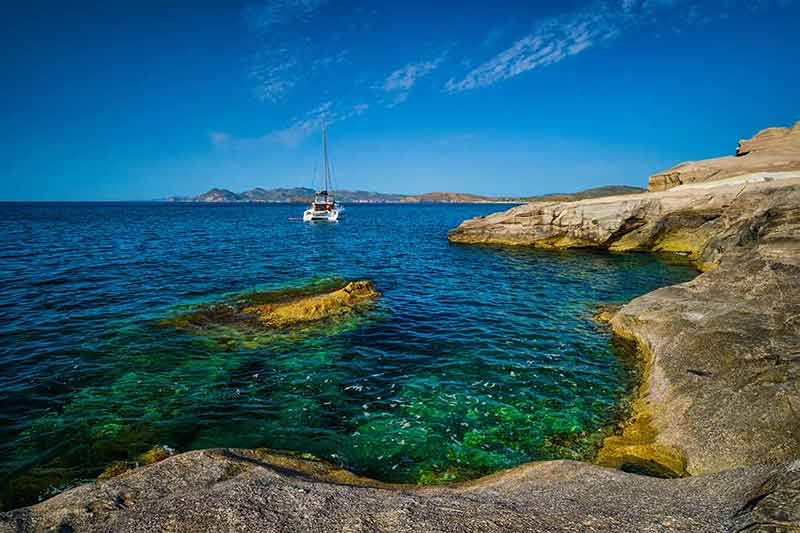
Few countries have as much to offer for those loving to sail as Greece and experienced sailors can hire a boat to cruise the Greek Islands if they wish.
Alternatively, if you want to hire a boat, captain and crew, that is an extremely popular alternative so book early to avoid missing out.
3- Go On A Walking Tour Of Athens
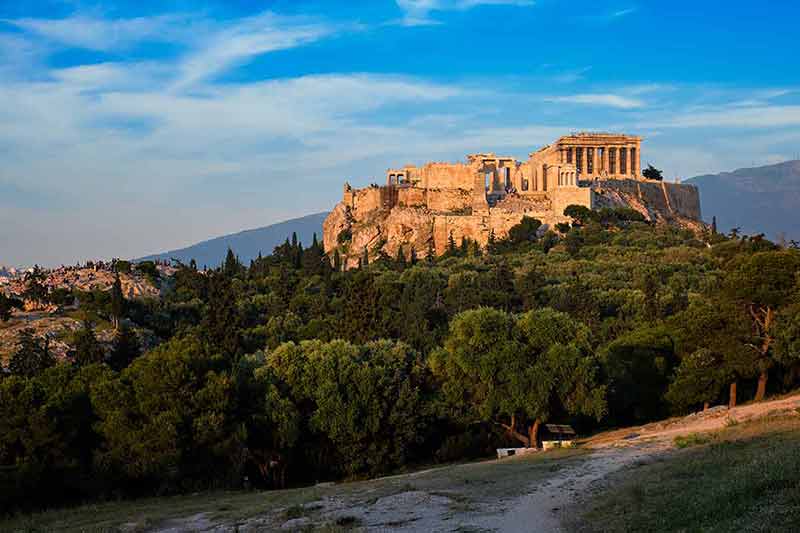
Athens is an interesting city to explore and the Parthenon on the Acropolis is the image that is regularly used in promoting Greece as a whole.
It is just one of many important historical sites in the Greek capital.
It’s worth joining a walking tour to listen to commentary as you walk.
It will be hot when the sun is at its highest so carry water.
4- Visit The Peloponnese
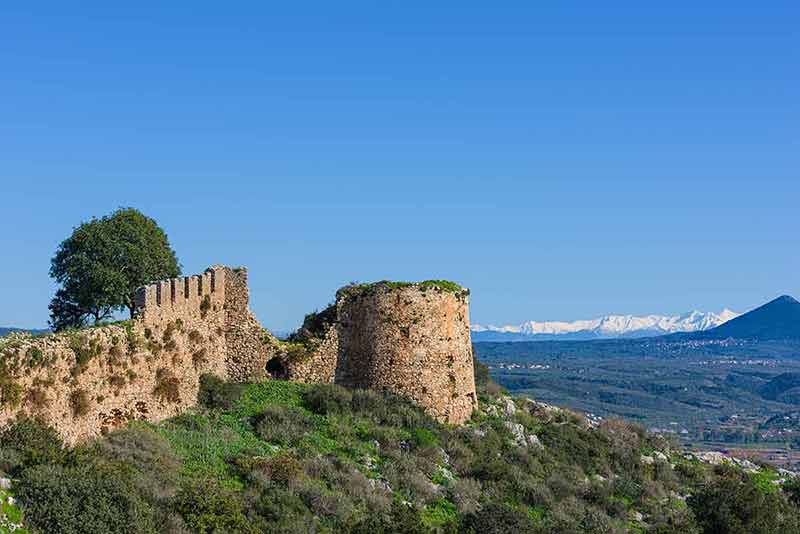
Visit the Peloponnese, a peninsula southwest of Athens with the famous Corinth Canal running through the isthmus separating it from the mainland.
Several historically important sites here include Corinth, Olympia, Mycenae and Sparta, a mighty city-state in ancient times.
5- Explore Thessaloniki
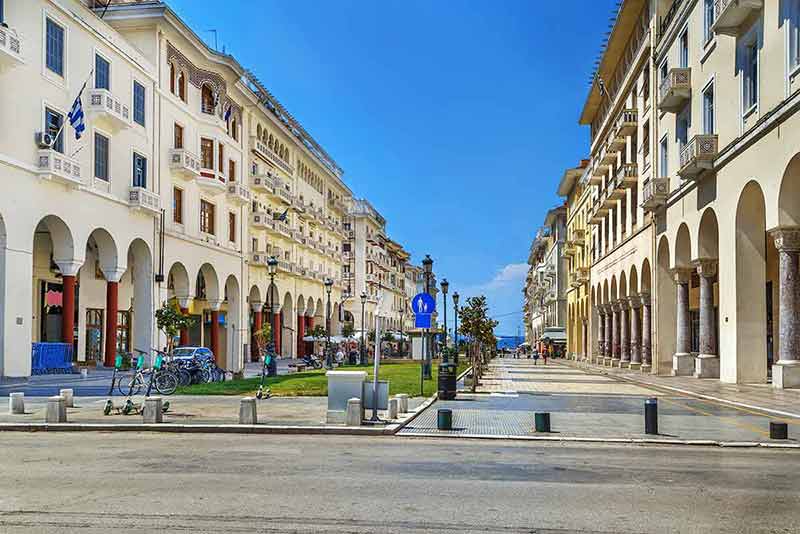
Why not head to Thessaloniki in the north? It is a city of real historical and cultural significance.
It combines Byzantine architecture with Roman, Ottoman and Sephardic Jewish gems.
Its cuisine is truly famous, and the beaches will satisfy any sun-worshipper.
Top tips:
- Be prepared for hot weather by carrying water and wearing something on your head. The sun is strong and you need suitable protection from its rays.
- If you are sailing, the breeze adds to the impact of the sun, so be warned.
- Forget international cuisine. Greek cuisine is wonderful and you should take advantage of what is on offer at every opportunity.
Greece in Autumn

Temperatures begin to fall slowly through autumn time, yet they remain moderate.
This is a good season for outdoor land-based activities where the sun’s heat is not too debilitating, and sailing the seas is still very popular, although families have probably returned home to school.
There will be rainfall starting in October, but it is still warm.
Intense colour is a feature of autumn, harvest time and its resultant festivals.
There are smaller crowds at the major landmarks throughout the country making it easy to enjoy the historical sites in autumn.
The photographs you may have seen of Greece rarely show any crowds, and once you are into autumn, those crowds will not fill your photograph.
Crete is a favourite with the added bonus of its wine and cuisine.
You still need a hat, comfortable footwear and water, but the pace of life is coming back to normal after the weeks of high season.
Athens has its history but also modern activities and good shopping.
Here are some guideline stats but remember there are regional variations:
- September (Sunrise 0705, Sunset 1935, Average Low Temperature 18C (63F), Average High Temperature Average High 31C (88F))
- October (Sunrise 0730, Sunset 1850, Average Low Temperature 13C (55F), Average High Temperature 20C (68F)
- November (Sunrise 0705, Sunset 1715, Average Low Temperature 12C (54F), Average High Temperature 18C (64F)
Five Things to do in Greece in Autumn
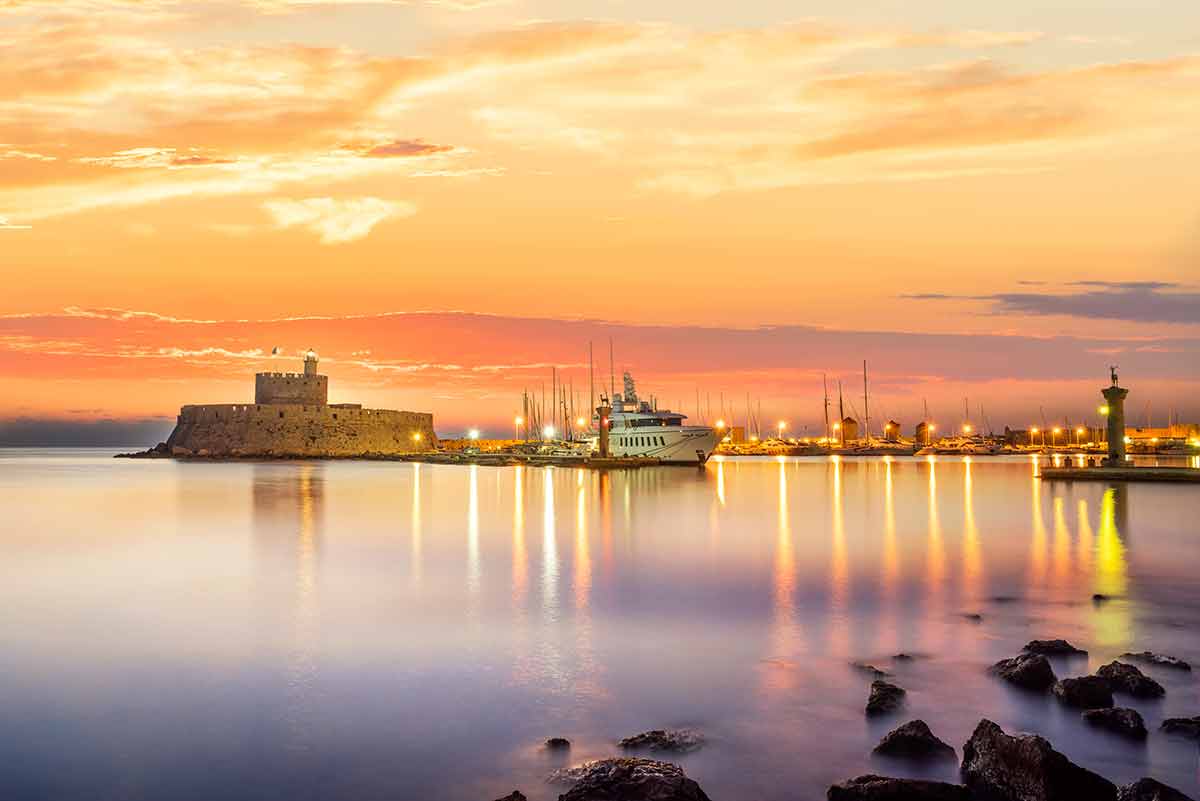
1- Enjoy Famous Greek Landmarks
Plan an itinerary to include the Greek landmarks you’ve always wanted to see.
Athens is an obvious choice for major landmarks, but there are many other places to investigate.
Ferry services continue to run regularly if Athens is your base. You can take a ferry for the day to visit three or four islands close by before returning to base in the evening.
2- Attend a Film Festival
There are international film festivals in both Athens and Thessaloniki in the autumntime.
Film may not be important to you, but other events inevitably occur around the significant event itself and both cities also host wine festivals.
3- Attend A Wine Or Beer Festival
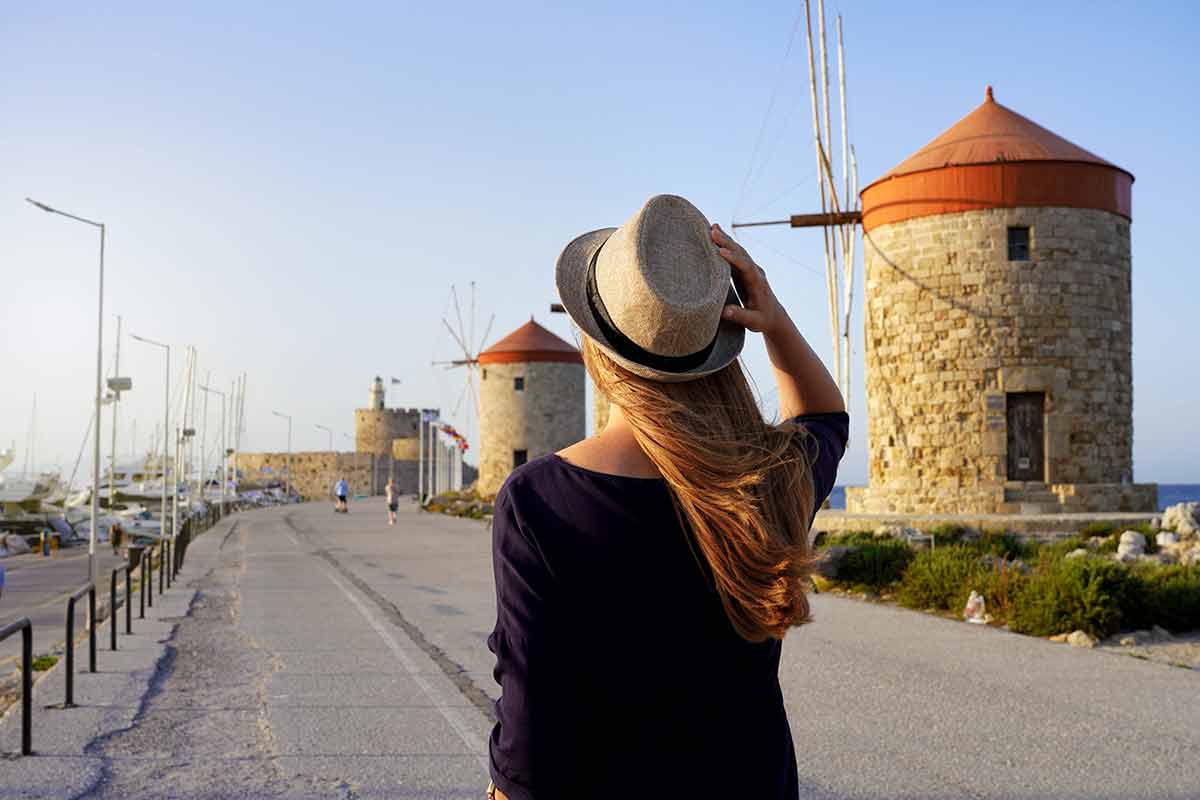
This is winemaking season.
Rhodes has a festival for wine with dancing and feasting features of the celebrations.
Rhodes still has direct charter flights, so getting there is no real problem.
Alternatively, Corfu, equally accessible, has a beer festival.
4- Enjoy Cretan Cuisine
Cretan cuisine is famous well beyond the borders of Greece.
Its Gastronomy Festival is popular, while the cooler temperatures mean that visiting its historical and cultural sites is more comfortable than in summer.
5- Watch The Athens Marathon
In November, Greece celebrates the story of a warrior, Pheidippides, who ran from Marathon to Athens to announce victory over the Persians.
Athletes from around the globe descend on Athens to compete over the distance, while shorter runs, 5km and 10 km, attract casual runners.
If you prefer just to be a spectator, head to the Stadium in Athens to enjoy the finish.
Top tips:
- Carry something light with you in case of rain.
- Especially in September, remember the sun’s rays are still strong.
- If you are going hiking in desolate areas, tell someone where you are going.
Greece in Winter

Winter in Greece is much quieter.
The charter flights that head to Athens and across the Aegean to the islands largely disappear, yet life goes on.
Scheduled flights to Athens remain regular, and ferries cross the Aegean to maintain contact between the mainland and its islands, but it is important to check timetables if you are planning time in Greece.
Greece still has plenty of sunny days in the winter months, and the temperature is fairly mild, especially in the southern regions.
While some of the popular islands are closed for winter, there are still places open to enjoy the local cuisine.
It is also more comfortable to visit the many landmarks throughout Greece without encountering tourist crowds.
Greece is not an obvious place for a skiing holiday, but there are opportunities such as at Mount Olympus, where you can get to close to 5,000 ft (1,450 m) and find ski trails.
You can absorb the daily life of Greek islanders away from the peak periods, come away with a good understanding of the country, and have the opportunity to go to local festivals as well.
You would be better to pick larger islands for a winter visit, such as Crete or Corfu.
Here are some guideline stats but remember there are regional variations:
- December (Sunrise 0730, Sunset 1710, Average Low Temperature 6C (43F), Average High Temperature Average High 14C (57F))
- January (Sunrise 0740, Sunset 1730, Average Low Temperature 6C (43F), Average High Temperature 11C (51F)
- February (Sunrise 0715, Sunset 1800, Average Low Temperature 6C (43F), Average High Temperature 11C (51F)
Five Things to do in Greece in Winter
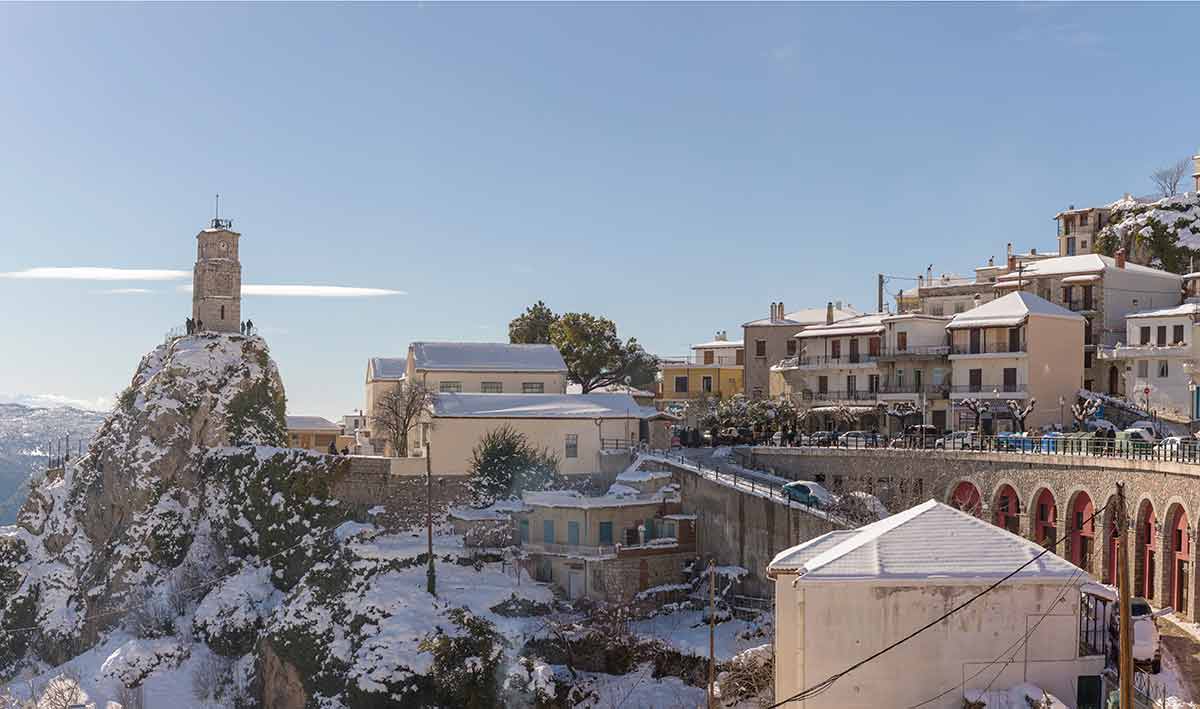
1- Explore The Cultural And Historical Sites In Athens
Choose an itinerary in Athens to take in its major cultural and historical sites.
The temperatures by day are usually comfortable but take light shower protection with you and something warmer if you intend to be out all day.
If there is rain around, you can always plan to spend time in Athens’ many fine museums.
2- Enjoy The Greek Islands
Summer holidays usually mean the beach, but winter conditions are conducive to exploring the islands’ interior.
The Greek Islands are not hugely mountainous, but there are still plenty of good walking and hiking trails to enjoy.
On the mainland, with a bit of research, you can find some true challenges if you are an experienced hiker.
3- Eat Hearty Winter Meals In The Tavernas
Greek winter cuisine is different to the lighter meals of summer.
Sit down in a local taverna to enjoy winter’s more substantial cuisine, which will include hearty soups, stuffed cabbage leaves, meatballs or roasts, and a range of desserts.
4- Go Skiing

You can combine a little skiing with other activities in the wintertime.
Do not expect Greece to match famous European ski resorts, but for a multi-activity holiday, it deserves your research.
5- See The Changing of the Guard
The spectacle of the Changing of the Guard at the Athens Presidential Palace is worth seeing both for the guards’ uniforms and their exaggerated marching steps.
The Palace is close to the city’s main shopping area, so combine the two.
Top tips:
- Prepare for cool weather, especially as the sun starts to go down
- Always check timetables and do not assume a ferry will always be available. In general, plan well in advance.
- Some of the hiking trails are remote, so go properly equipped and tell someone where you are going.
Greece in Spring

Temperatures begin to rise as Greece anticipates the arrival of the tourist season and charter flights generally begin to cater for the Easter holidays, which can range from the second half of March to mid-April.
It is not until May that you will find evening temperatures sufficient to be comfortable outdoors without a jumper or jacket yet open-air dining is fine.
Springtime is an excellent season in most European countries as the countryside seems to come alive and Greece is no exception.
It is generally warm by day, so in the spring you can enjoy all the things that may be less attractive than the hot days of summer.
The sea is gradually warming, but you will feel a chill until you get used to it and if you are sheltered from any breezes, the sun’s rays are worth taking in.
You will get a decent tan, although it takes longer than in the summer.
Days get longer and significant crowds have yet to appear, although regular visitors to Greece often pick May and September for their visits.
It is warm without being uncomfortably steamy during the day, with cooler nights, and all of Greece’s many attractions are there to enjoy.
Here are some guideline stats but remember there are regional variations:
- March (Sunrise 0630, Sunset 1830, Average Low Temperature 8C (46F), Average High Temperature Average High 16C (61F))
- April (Sunrise 0650, Sunset 2000, Average Low Temperature 12C (54F), Average High Temperature 22C (71F)
- May (Sunrise 0615, Sunset 2030, Average Low Temperature 17C (63F), Average High Temperature 26C (78F)
Five Things to do in Greece in Spring
1- Go Island Hopping

You will find that ferry frequency increases, so plan some island hopping, either day trips or itineraries covering a few days.
2- Admire The Colours Of Spring
The spring colours in Greece are lovely before the hot sun can dry the land.
After deciding where you want to make your base, look at the routes you can take, walking, cycling or even motoring, to see the best of this colour.
3- Visit Crete
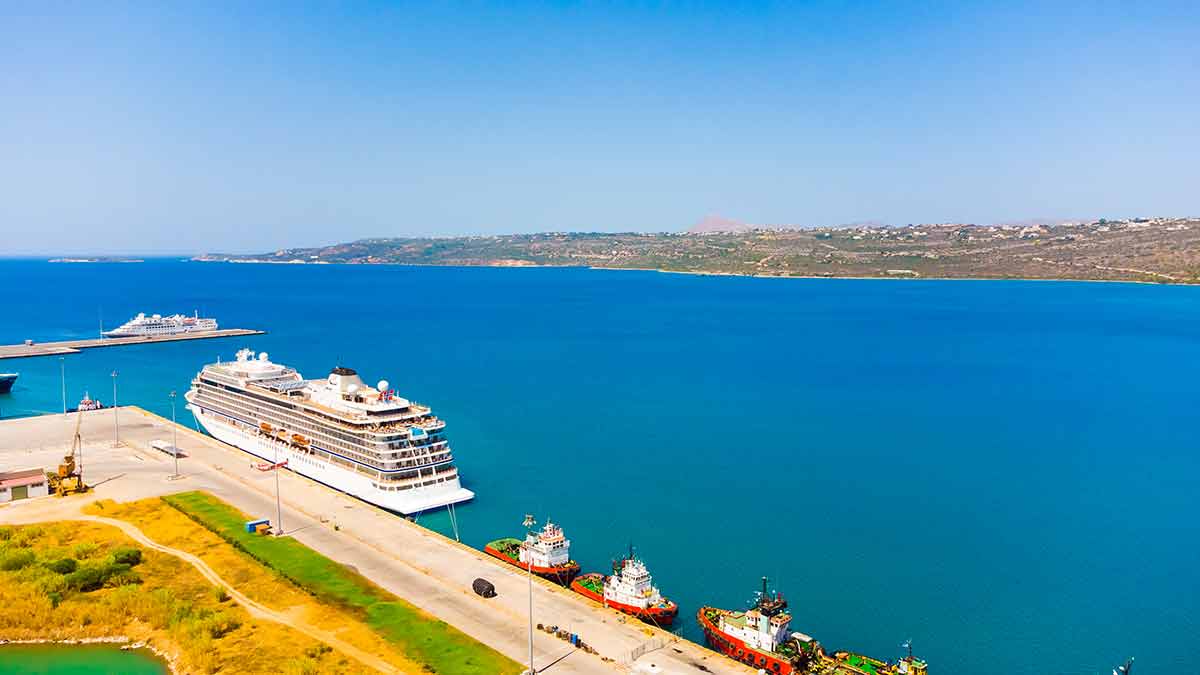
Crete is exceptional all year round, but spring takes some beating.
In May, head to Samaria Gorge, the longest in Europe and some would say the prettiest in springtime.
There is a national park, a wildlife haven, and plenty of walks and hikes to enjoy that would be too hot to tackle in summer.
4- Explore The Peloponnese
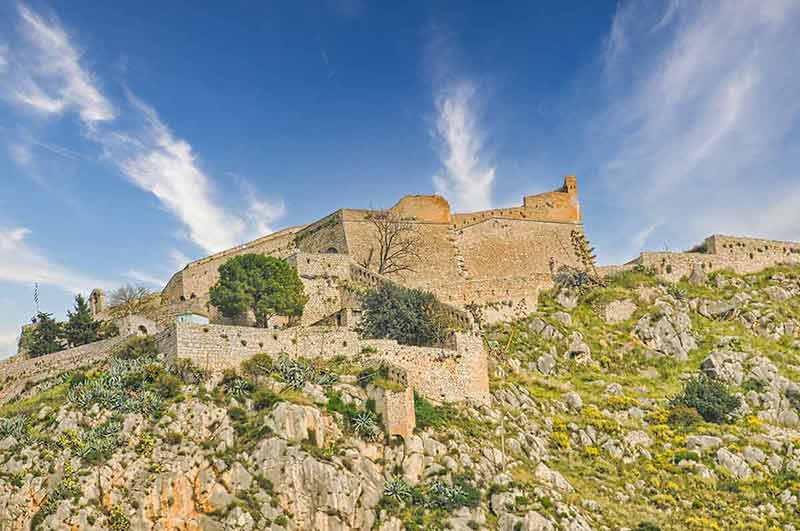
The Peloponnese is a place to see in the spring as it’s beautiful and also has significant sites to visit.
Ancient Byzantine churches are just one of the things to visit in a region that was Sparta in ancient times.
5- Celebrate A Greek Easter
Easter in Athens is an experience, with activities based on Easter and the chance to visit a flower festival, with other celebrations on specific days.
Check the calendar to decide on when to go for planned events.
Top tips:
- Check the weather forecast and go out prepared for cooler weather or rain.
- Even though crowds will not be huge if you intend to visit numerous museums, get a pass to save money and avoid the lines.
- Go to a local market to see the array of fruit and vegetables. It will give you ideas about what to order at your local restaurant.
Are you itching to travel somewhere but can’t decide where or when to go? These posts might help:
- Best Time To Visit Iceland
- Best Time To Visit Macau
- Best Time To Visit Singapore
- Best Time To Visit China
- Best Time To Visit Egypt
- Best Time To Visit Japan
- Best Time To Visit Cuba
- Best Time To Visit England
- Best Time To Visit Peru
- Best Time To Visit Spain
- Best Time To Visit California
- Best Time To Visit Colorado
- Best Time To Visit Turkey
- Best Time To Visit Greece
- Best Time To Visit France
- Best Time To Visit Switzerland
- Best Time To Visit Norway
- Best Time To Visit Italy
- Best Time To Visit Germany
- Best Time To Visit Thailand
- Best Time To Visit Portugal
- Best Time To Visit Croatia
- Best Time To Visit Scotland
- Best Time To Visit Costa Rica
- Best Time To Visit Argentina
- Best Time To Visit Brazil
- Best Time To Visit Chile
- Best Time To Visit Austria
- Best Time To Visit India
Plan Your Trip

Rent A Car – Find the best car rental rates at Discover Cars. They compare car hire companies to provide you with the best deal right now.

Find A Hotel – If you’re curious about this article and are looking for somewhere to stay, take a look at these amazing hotels.

